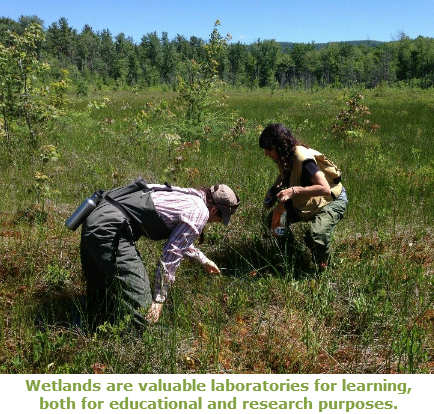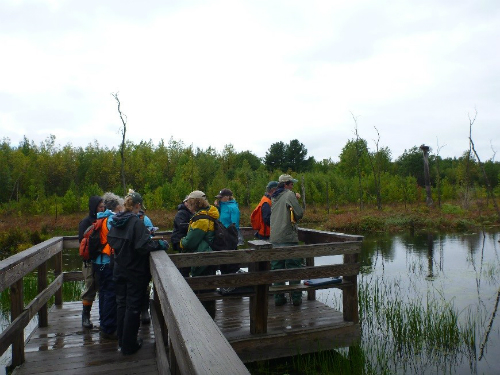
Wetlands can provide tremendous opportunities for education and research. They are good systems to study for several reasons, one of which is that they are discrete ecosystems with easily defined boundaries. They also can exhibit a high diversity of habitats and species. By examining the types of pollen in layers of peat moss taken from bogs, we can learn about historical changes in climate and vegetation over thousands of years. Wetlands also have unique life forms, such as insectivorous plants, that are not found in the adjacent uplands. When wetlands are preserved as open areas, or are put into a land trust, they will remain valuable resources for education and research.
According to the Vermont Wetland Rules, wetlands that provide, or are likely to provide valuable resources for education or scientific research are significant wetlands. In determining whether a wetland is significant for the Education and Research in Natural Sciences function, the Secretary or the Panel shall, at a minimum, consider whether the wetland:
a. Is owned by a public entity dedicated to education or research or an easement for education or research has been conferred to a public entity.
b. Has a history of use for education or research.
c. Has one or more characteristics which make it unique or valuable for education or scientific research purposes.
Links of Interest
- Vermont's State Parks: a great place to start looking at wetlands. Just search for "wetlands" to find State Parks with wetlands near you.
- EPA Wetland Education: some great tools for learning, or teaching in and about wetlands.
